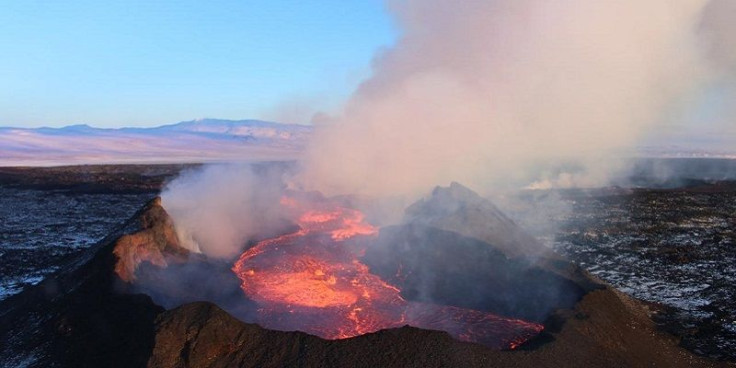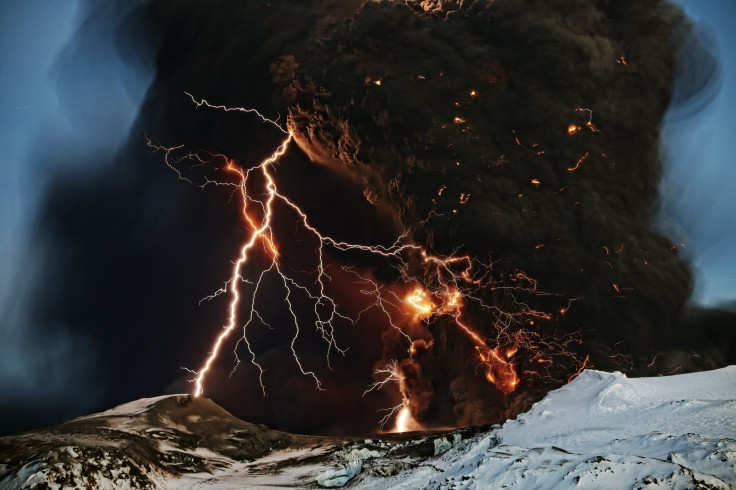Glaciers Melting From Climate Change Threaten To Reactivate Iceland’s Sleeping Volcanoes

Scientists are saying that melting glaciers could lead to more volcanoes erupting in Iceland because of the way the pressure on the terrain will change — and it’s the reverse of a pattern that has occurred previously in history.
A team of researchers reported in the journal Geology that the way the climate affected the size of glaciers thousands of years ago played a role in how often Icelandic volcanoes experienced eruptions and spewed ash into the air over Europe. According to the researchers, a climate change event decreased global temperatures and caused glaciers to grow, and about 600 years after the world got colder there was a huge, millennium-long reduction in the number of eruptions, based on an analysis of ash deposits.
They say with the world getting warmer and glaciers melting, the reverse could happen in the future: Some centuries from now, the volcanoes might become much more active, spitting out large volumes of ash and lava for 1,000 years.
That relationship between glacier size and volcanic eruptions is linked to pressure. When a glacier grows or shrinks, it changes the amount of stress it is putting on the Earth’s crust and the top part of its mantle. When the pressure on underground chambers full of magma shifts, it could affect the likelihood of eruption.
“Climate change caused by humans is creating rapid ice melt in volcanically active regions,” researcher Graeme Swindles said in a statement from the University of Leeds. “In Iceland, this has put us on a path to more frequent volcanic eruptions.”
The findings suggest a consequence of dwindling glaciers beyond the immediate challenges of things like habitat loss and rising sea levels, a problem that has been set into motion but we will not see in the next few generations.
“Given the time lag identified here, increase in volcanic eruptions due to ongoing deglaciation…may not become apparent for hundreds of years,” the study says.
Although the research suggests eruptions far into the future, it comes as concern over Iceland’s volcanoes has been increasing. Scientists have detected seismic activity at a couple of sites, including Öræfajökull and Bárðarbunga, that suggest the ground might be shifting. Earthquakes or tremors caused by uplifting ground could predict eruptions, because it could increase the amount of space underground for magma.

© Copyright IBTimes 2024. All rights reserved.




















